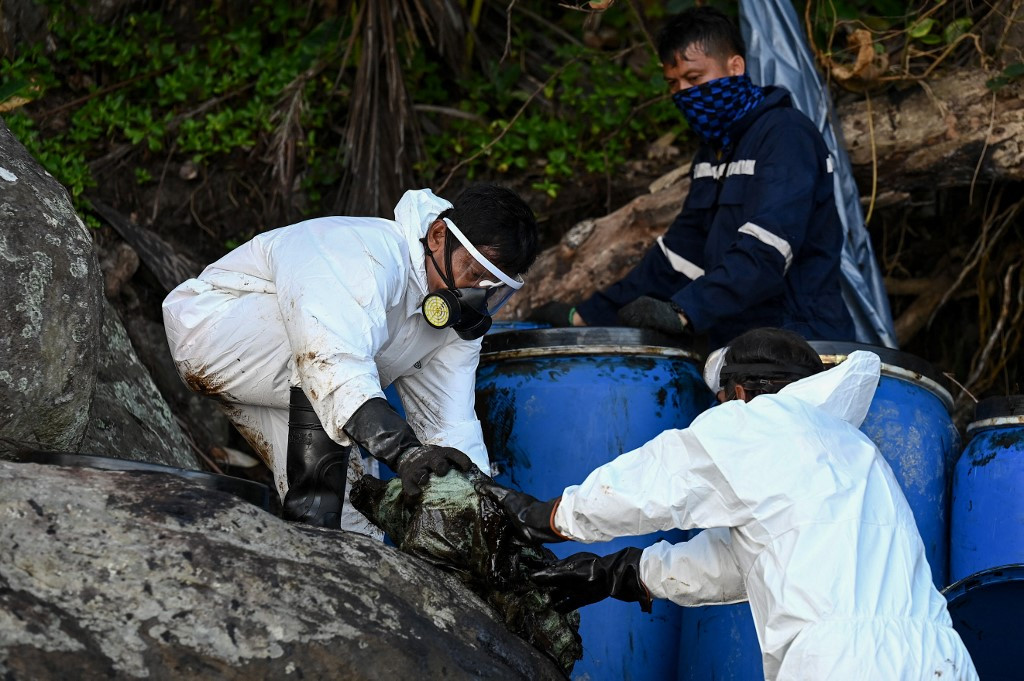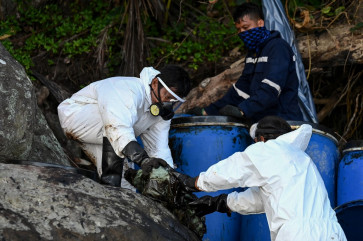Popular Reads
Top Results
Can't find what you're looking for?
View all search resultsPopular Reads
Top Results
Can't find what you're looking for?
View all search resultsPhilippine fishermen struggle as oil spill keeps them ashore
Philippine fishermen have spent four hours a day cleaning up oil in exchange for a daily wage of 355 pesos ($6.50) from the government -- half what they used to make from fishing.
Change text size
Gift Premium Articles
to Anyone
A
crab covered in oil creeps across the sand as Philippine fishermen wearing white protective suits, rubber gloves, and respirator masks scrape toxic sludge from the rocks along the shore.
Four weeks after a Philippine tanker loaded with 800,000 litres (210,000 gallons) of thick oil sank off the central island of Mindoro, the vessel is still leaking.
More than half the oil has been discharged and dispersed over hundreds of kilometres of waters famed for having some of the most diverse marine life in the world.
Experts estimate the two main slicks northwest and southeast of the tanker could span 162 square kilometres (62 square miles).
It took two days for the spill to reach Buhay na Tubig, a remote village in Pola, one of the island's worst-affected municipalities.
Some villagers got sick after oil smeared the shoreline, turning rocks black and leaving dark globs on the beach.
Authorities have banned fishing and swimming indefinitely, leaving thousands of fishermen wondering how long they can survive.



















